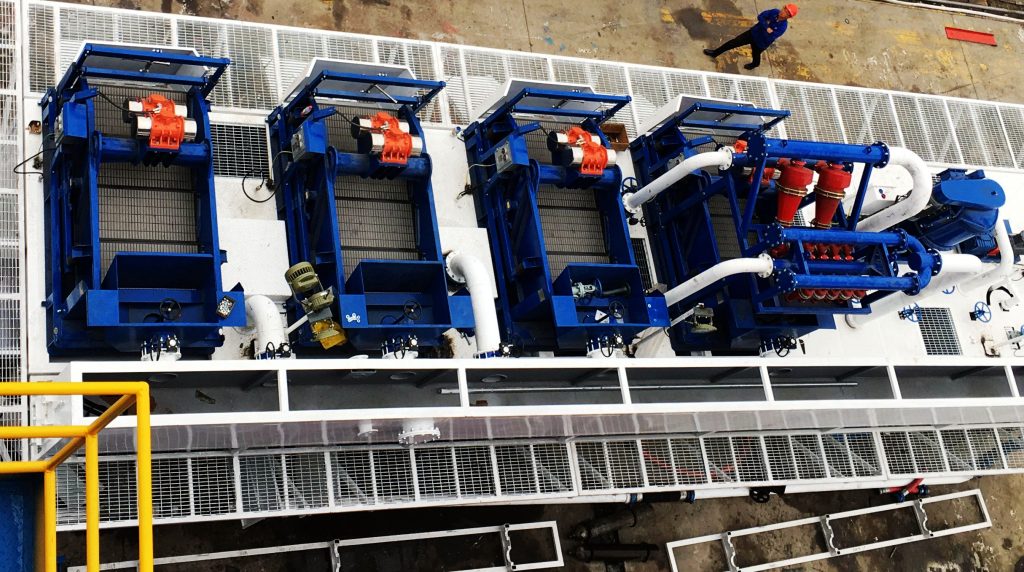Solid control equipment is used to separate and treat cuttings, mud and sand particles in drilling fluid, maintain drilling fluid properties, and store circulating drilling fluid. It is equipped with a heavy mixing device, a filling device, and a chemical agent filling device. Used to improve the physical and chemical properties of drilling fluid to meet the needs of drilling work.

Useful solid and harmful solid?
Useful solid phase: the solid phase that must be used in the mud, such as bentonite powder, chemical treatment agent, weighting agent, etc.
Harmful solids: solids other than useful solids, such as drilling cuttings, inferior clay, sand, etc.
High-density solid and low-density solid: LGS- Low specific gravity solid phase content, unnecessary solid phase and non-weighted mud material caused by solid phase, HGS- High specific gravity solid phase content, weighted material caused by solid phase.
The solid phase of the drilling fluid was effectively controlled, followed by other drilling improvements:
1, reduce the pump maintenance time.
- Extended bit life and reduced drilling fluid cost.
3, conducive to the maintenance of drilling fluid properties to ensure that drilling fluid in rheological control, anti-collapse ability, lubrication performance, cuttings carrying, leakage and plugging, and other aspects have good performance. - It is of great significance to ensure underground safety, improve the drilling rate, shorten drilling cycle, and save total drilling costs.
If the solid phase in the drilling fluid is not removed, it will be hydrated and dispersed in the drilling fluid, and then become finer and finer through mechanical crushing, and the surface area will increase infinitely, eventually leading to a series of problems. Colloidal particles smaller than 1 micron in the mud have a 12 times greater effect on the drilling rate than coarse particles larger than 1 micron, so the drilling rate using a non-dispersed system is much faster than using a dispersed system.

